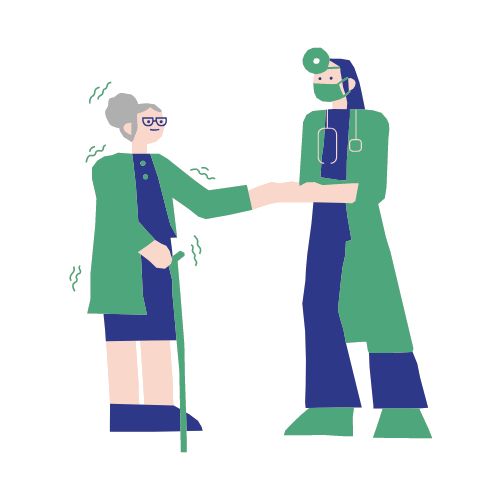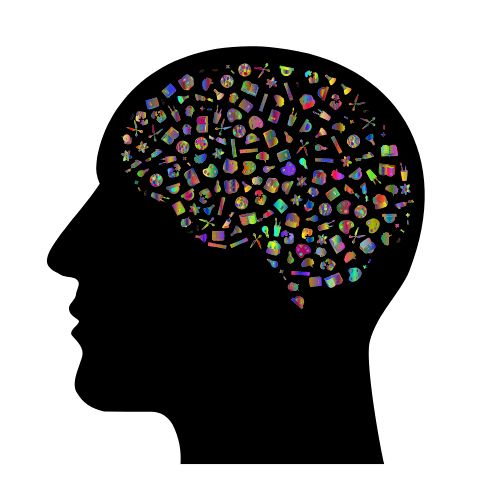Neurological Disorders That Cause Falling
It is common for people in old age to lose some muscle strength. They trip or fall more often than a young person would. But things can be concerning when the incidence of falls becomes recurring.
For instance, it is not normal for a senior person to fall every time they head out of the house to buy a bag of milk, or answer the door. Frequent falls can be a result of an injury in the lower limb, or in some cases could be caused due to neurological disorders.
Is there a link between neurological disorders and falling?
Falling is a common occurrence, especially in older adults, and can result in serious injury. Research done by the Medical University Graz suggests that there is a link between neurological disorders and falling.
Neurodegenerative diseases, such as Parkinson’s disease, multiple sclerosis, and Alzheimer’s disease, can affect the nervous system and impair the body’s ability to control movement, balance, and coordination.
Peripheral neuropathies, which result from damage to the nerves in the arms and legs, can also increase the risk of falls. This type of nerve damage can cause numbness, weakness, and loss of sensation in the affected limbs, making it more difficult to perform activities of daily living, such as standing, walking, and navigating uneven surfaces.
Furthermore, vestibular disorders, which affect the inner ear and balance, can also increase the risk of falling. This includes conditions such as vertigo, which can cause dizziness and a sense of unsteadiness, and Meniere’s disease, which can result in episodes of vertigo, ringing in the ears, and hearing loss.
What I am trying to say is, there is a strong link between neurological disorders and falling. You should consult a doctor if your loved one is suffering from frequent falls.
How can a person with a neurological disorder prevent falls and trips?
A person with a neurological disorder can prevent falls and trips by taking the following measures:
- Exercising regularly to improve balance and coordination.
- Making changes to their environment, such as removing tripping hazards, adding grab bars, and improving lighting.
- Using assistive devices such as canes, walkers, or wheelchairs, as needed.
- Wearing non-slip shoes and clothing that fits properly.
- Taking medications as prescribed to manage symptoms and prevent falls.
- Keeping their home free of clutter and ensuring the walking paths are clear.
- Seeking professional help to improve balance, such as physical or occupational therapy.
- Taking regular breaks and avoiding physical and mental exhaustion.
- Managing other conditions that can contribute to falls, such as dizziness, vertigo, or low blood pressure.
- It’s important to work with a doctor, physical therapist, or other medical professionals to create a personalized plan to prevent falls and improve overall health and mobility.
My elderly parent is frequently falling? Which doctor should I consult?
There are several options, but I would suggest you consult a geriatrician or a neurologist. Geriatricians are specialists in caring for the elderly, including conditions related to aging such as falls and balance problems.
On the other hand, a neurologist specializes in the diagnosis and treatment of nervous system disorders, which can also contribute to falls. In some cases, a combination of both doctors may be necessary.
It is important to have a thorough evaluation to determine the cause of the falls and to create a plan to prevent future falls and improve overall safety.
Can a young person fall without any reason?
Yes, a young person can fall without any apparent reason. Falls can occur due to various factors such as poor balance, muscle weakness, environmental hazards, or underlying medical conditions.
Do neurological disorders affect a young person’s ability to walk?
Yes, some neurological disorders can affect a young person’s ability to walk. These conditions may result in a lack of coordination, balance, and muscle strength, making it difficult to walk or stand without falling.
Early diagnosis and treatment are essential in these cases, as well as working with physical therapists and other medical professionals to improve balance and mobility.
Here are the neurological disorders that cause falling and tripping
1. Parkinson’s disease

Parkinson’s disease can change the walking patterns of a patient. A person who once used to walk normally now begins to overthink every step as he or she is unsure about the accuracy of the foot placement.
Not only that, but people with Parkinson’s have poor balance. Their lower body tends to freeze after standing in one position. Freezing in one position also leads to falls, especially when they suddenly move without being aware of their physical limitations. It is often seen older people with this condition fall or trip after standing in line at the grocery store or a supermarket.
2. Multiple sclerosis
An Irish study says that people with Multiple sclerosis (also known as MS in medical lingo) have a 50 percent chance of falling every time they get on their feet. The study also confirms that their condition is similar to seniors over 80— who routinely get injured by falling or tripping. People with Multiple sclerosis require more care compared to other those with other neurological disorders.
3. Stroke

Every year, around 795,000 people in the United States have a stroke, says a report by CDC. In addition to that, countries like Qatar, Canada, and France have a high number of people suffering from stroke. A stroke occurs when the brain suffers damage due to an interruption in the blood supply.
And yes, people indeed have a high risk of falling post-stroke. The chances of falling are more post-recovery as this is the time when patients are in the initial stage of regaining their mobility. Their condition improves with time.
4. Polyneuropathy
Polyneuropathy is another neurological disorder that leads to falling, tripping, and slips. This condition occurs when peripheral nerves all over the body malfunction, hence it is also known as “Peripheral neuropathy”.
People suffering from Peripheral neuropathy lose sensation in their feet. They find it difficult to notice hurdles that may arrive near their feet— when walking. Hence, they trip and fall when walking.
It is important to note that Peripheral neuropathy affects the brain, spinal cord, and nerves at the same time. The patient’s life becomes incredibly difficult, and they need the best medical care for total recovery.
5. Encephalitis
Encephalitis (also known as inflammation of the brain) is a condition that causes the brain to swell abnormally. Infection or allergic reaction is generally the cause behind this condition.
Do folks with Encephalitis fall very often? Does Encephalitis cause balance issues?
Not every person suffering from Encephalitis experiences balance issues. It depends on the degree of infection. Some people recover quickly without any lingering symptoms, whereas others take longer— and suffer from coordination issues during the recovery period.
6. Ataxia
Ataxia is a neurological condition that occurs when the cerebellum (a part of your brain located at the back of your head) suffers damage. This condition can also occur when other vital parts of the body such as the spinal cord or nerves are damaged. The damage could be a result of an accident or a severe injury.
It is common for a person with cerebellar ataxia to fall or trip when walking. In addition to balance problems, the cerebellar ataxia patient also experiences slurred speech. The entire body gets disoriented.
A study done by the Department of Kinesiology and Physical Education, at McGill University confirms this. During the study, participants with Ataxia were asked to stand on a flat surface for a minute.
Further, the surface on which they stood was tilted slightly (about 5 degrees). The participant struggled to stand still when the surface was tilted. A healthy person can stand erect without any issues when the floor is tilted to a 5-degree angle.
7. Hydrocephalus
Hydrocephalus is a brain condition caused by excess buildup of fluid within the brain cavities. This condition is also known as Normal Pressure Hydrocephalus. Due to the excess buildup of fluid, the brain ventricles swell up. The enlarged ventricles take up all the space within the brain, which eventually leads to brain tissue damage.
“Sudden falls” is one of the symptoms of Hydrocephalus. A person can fall when walking or standing— usually, they fall without a warning, which makes the fall fatal.
Unsteady walking or gait, drowsiness, blurred vision, etc are also the symptoms of Hydrocephalus. When the patient experiences all the symptoms together, it becomes incredibly challenging to walk. Hence, doctors suggest Hydrocephalus patients have a caregiver with them, when outdoors.
Conclusion
Frequent falls can lead to fatal injuries in people suffering from neurological disorders. Caregivers play a big role in keeping the care recipients safe, especially when they are outdoors. Note that there are several neurological conditions, and each possesses a varied level of fall risk. You must consult a doctor if you have a family member suffering from any of these conditions.


IVE BEEN FALLING ALOT EVERY WEEK 3X A WEEK.IM STARTING PT IN 2 WKS ALSO NEUR APP IN AUGUST.BUT WHY THE FALLS? I HAVENT DRIVEN IN 3 MOS AND NOW FALLS WITHOUT ME KNOWING WHY.